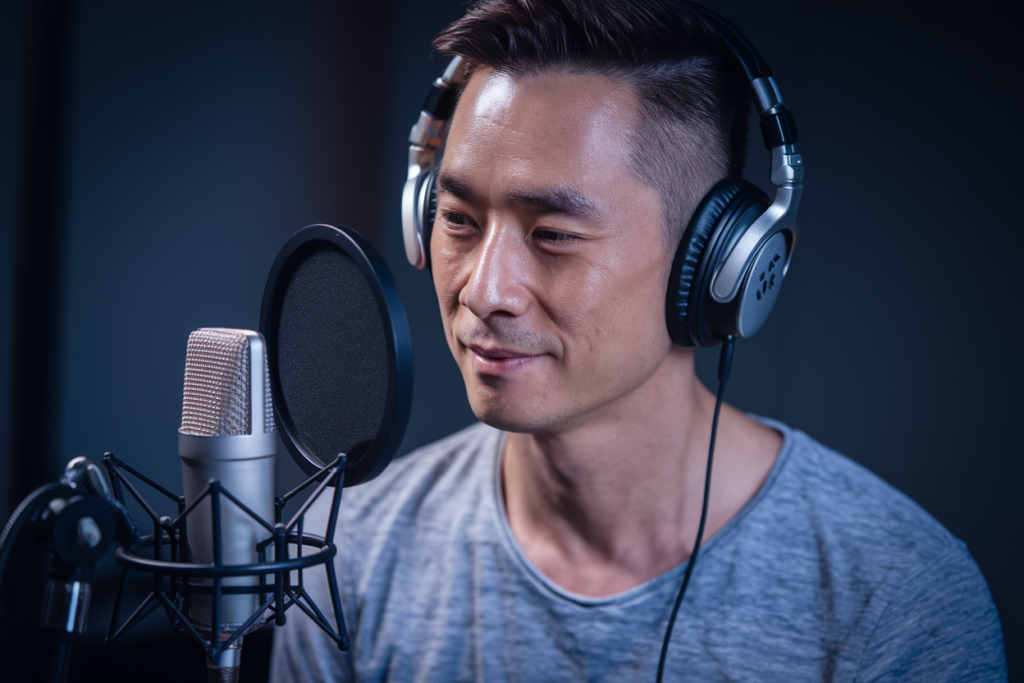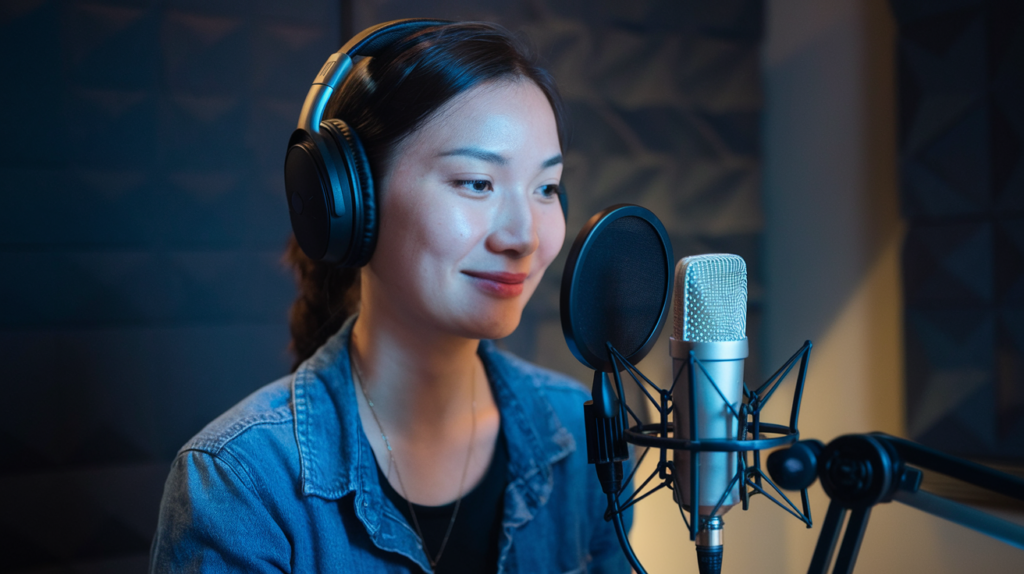Key Takeaways
- Mastering Chinese Accents Enhances Authenticity: Understanding different Chinese accents is essential for voice actors to deliver authentic performances that resonate with audiences.
- Cultural Representation Matters: Each accent reflects unique regional identities and cultural backgrounds, allowing voice artists to embody diverse characters more effectively.
- Variety of Accents Increases Versatility: Mastering various Chinese accents, such as Mandarin and Cantonese, expands a voice actor’s skill set and appeal in the industry.
- Emotional Delivery is Key: Emotional expression varies by accent; recognizing these differences helps convey genuine emotions tied to cultural contexts during performances.
- Consistent Practice is Crucial: Regular exercises, including engaging with native speakers, are vital for refining pronunciation and emotional resonance across different accents.
- Feedback Incorporation Improves Performance: Recording practice sessions and seeking critique from peers or mentors can provide valuable insights that enhance authenticity in voice acting.
Ever wondered how mastering voice acting with different Chinese accents can elevate your performance? Whether you’re a seasoned pro or just starting out, understanding the nuances of these accents is crucial for authenticity and connection.
Overview of Voice Acting
Voice acting involves bringing characters and narratives to life through vocal performance. It requires a unique set of skills that go beyond just reading lines. A voice actor must convey emotions, attitudes, and cultural nuances effectively.
Different Chinese accents play a crucial role in this craft. Understanding these accents can significantly enhance your voiceover performances. Each accent carries its own distinct sound patterns, intonations, and expressions that reflect regional identities and cultural backgrounds.
When you master various Chinese accents, you expand your versatility as a voice artist. Clients often seek voice talent who can accurately portray characters from diverse backgrounds. Whether you’re voicing animated characters or narrating educational content, showcasing your ability to adapt to different accents strengthens your appeal.
Consider the impact of authenticity in storytelling. Audiences connect more deeply with narratives that resonate culturally and linguistically. As a voiceover actor, embodying the essence of an accent not only enriches the character but also enhances the overall listening experience.
Invest time into practicing these accents through targeted exercises or coaching sessions with experienced professionals. Engaging with native speakers can provide invaluable insights into subtle differences that define each accent.
Embracing various Chinese accents in your voice acting repertoire opens doors to countless opportunities within the industry. Your commitment to authenticity will shine through in every project you undertake.
Importance of Accents in Voice Acting
Accents play a crucial role in voice acting, especially when it comes to delivering authentic performances. Mastering different Chinese accents not only enriches your skill set as a voice actor but also enhances the overall storytelling experience.
Cultural Representation
Cultural representation is essential in voiceovers. Each Chinese accent reflects unique regional identities and cultural backgrounds. When you adopt these accents, you embody diverse characters more effectively, allowing audiences to connect with the narrative on a deeper level. It’s about honoring traditions and portraying characters that resonate authentically with their cultural roots.
Character Authenticity
Character authenticity hinges on the ability to convey emotions and personality traits through nuanced accents. Whether you’re voicing a character from Beijing or Guangzhou, each accent carries specific sound patterns and expressions that define the character’s identity. By mastering these accents, you establish credibility as a voice artist. This connection enhances your appeal as a voice talent for clients looking for genuine portrayals across various projects.
Types of Chinese Accents
Understanding the various Chinese accents is vital for voice actors aiming to deliver authentic performances. Each accent reflects unique regional characteristics and cultural nuances, enhancing your versatility as a voice artist.
Mandarin Accents
Mandarin boasts numerous accents influenced by geography and local culture. The standard accent, known as Putonghua, serves as the official dialect in mainland China. However, regional variations like Beijing Mandarin exhibit distinct pronunciations and tones. For instance, you might notice that the „r” sound in Beijing often sounds more like an „l” to outsiders. Mastering these subtleties can elevate your performance and help you connect with audiences intimately.
Cantonese Accents
Cantonese is rich with its own set of accents that vary significantly across regions like Hong Kong and Guangdong. This language features six to nine tones, depending on the dialect, making it essential for voice actors to grasp tonal differences accurately. When performing in Cantonese, capturing the melody of speech can convey emotions effectively. Think about how even slight variations can change meanings—getting this right showcases your skill as a voice over talent.
Regional Dialects
China’s linguistic landscape includes many regional dialects beyond Mandarin and Cantonese. Wu (Shanghainese), Min (Hokkien), and Xiāng (Hunanese) are just a few examples that add depth to character portrayals. Each dialect carries specific phonetic traits that enhance authenticity when you’re voicing diverse characters or narratives. Engaging with native speakers or listening closely can provide insights into these unique sounds—an invaluable step for any aspiring voice over actor looking to stand out in their field.
By mastering these types of Chinese accents, you not only enrich your skill set but also increase your appeal as a versatile voice talent capable of delivering genuine performances tailored to various clients’ needs.
Techniques for Voice Acting with Different Chinese Accents
Mastering various Chinese accents enhances your versatility as a voice actor. It allows you to deliver authentic performances that resonate with audiences. Here are some techniques to help you excel in this area.
Pronunciation Tips
Focus on the unique sounds of each accent. For instance, Mandarin has specific tonal patterns that can change meaning. Practice listening to native speakers and mimic their pronunciation to grasp subtle nuances. Break down words into syllables and repeat them until they feel comfortable. Use online resources or language apps that provide audio examples of different accents; these tools can significantly refine your skills.
Pay attention to regional variations too, like the differences between Beijing Mandarin and other dialects. Note how certain consonants may be pronounced softer or harder based on location; this distinction can alter character portrayal dramatically.
Emotional Delivery
Emotional delivery is crucial when portraying characters using different accents. Each accent carries its own set of emotional expressions tied closely to cultural context. Understand the cultural background associated with an accent—this knowledge helps convey genuine emotions during performance.
Practice reading scripts aloud while emphasizing emotion relevant to the character’s background; think about how a Cantonese speaker might express joy differently than someone from Xiāng province. Incorporate pauses, intonation changes, and pitch variations that reflect emotional states effectively.
Recording yourself while practicing provides valuable feedback; listen for areas needing improvement in both pronunciation and emotional resonance. Engaging exercises such as role-playing or improvisational acting also strengthen your ability to adapt emotionally while maintaining authenticity across diverse characters.
By focusing on these techniques, you not only enhance your appeal as a voice talent but also ensure authentic portrayals that captivate listeners across projects.
Challenges Faced by Voice Actors
Voice actors face several challenges when working with different Chinese accents. Each accent carries distinct characteristics that require specific skills and techniques to master.
Pronunciation Variability
Pronunciation varies significantly across Chinese accents. For instance, Mandarin has multiple regional pronunciations, while Cantonese features rich tonal variations. You need to recognize these differences and adjust your delivery accordingly.
Emotional Range
Emotional delivery plays a crucial role in voiceovers. Accents can impact how emotions are expressed, making it essential for you to capture the right tone and inflection for each character. Without this nuance, performances may lack authenticity.
Cultural Understanding
Cultural context is vital in effective voice acting. Each accent reflects unique cultural backgrounds and social nuances. Familiarizing yourself with these elements enhances your ability to portray characters authentically, resonating better with audiences.
Feedback Incorporation
Incorporating feedback can be challenging for voice artists striving for perfection. Recording practice sessions and sharing them with peers or mentors often leads to valuable insights that improve performance but requires openness to critique.
Consistent Practice
Mastering various accents demands consistent practice. Regular exercises help refine pronunciation and emotional resonance over time. Engaging with native speakers offers practical experience that’s hard to replicate through self-study alone.
By understanding these challenges, you’re better equipped to navigate the complexities of voice acting with Chinese accents, ultimately elevating your craft as a versatile voice talent ready for diverse roles.
Conclusion
Mastering Chinese accents is a game-changer for your voice acting career. It not only enhances your performance but also allows you to connect more authentically with your audience. By embracing the unique nuances of each accent you’ll enrich your portrayals and increase your versatility as a voice artist.
Investing time in practice and cultural understanding will open doors to new opportunities in the industry. As you refine your skills through targeted exercises and feedback, you’ll find yourself better equipped to tackle diverse roles that demand genuine representation. Your commitment to authenticity can set you apart in a competitive field where connection truly matters.
Frequently Asked Questions
Why is mastering Chinese accents important for voice actors?
Mastering Chinese accents allows voice actors to deliver authentic portrayals and connect deeply with their audience. Each accent reflects distinct regional identities, making it essential for achieving character authenticity and emotional resonance in performances.
What are the main types of Chinese accents that voice actors should know?
Voice actors should focus on Mandarin and Cantonese accents, along with various regional dialects like Wu, Min, and Xiāng. Understanding these accents helps convey emotions accurately and enriches character portrayals.
How can voice actors practice different Chinese accents effectively?
Voice actors can improve their accent skills by practicing with native speakers, using online resources, reading scripts aloud with emotional emphasis, recording sessions for feedback, and engaging in role-playing exercises.
What challenges do voice actors face when working with Chinese accents?
Challenges include significant pronunciation variations across accents, capturing the right tone for emotional delivery, and understanding cultural contexts behind each accent. Continuous practice and feedback are crucial to overcoming these hurdles.
How does cultural representation play a role in voice acting with Chinese accents?
Cultural representation is vital as each Chinese accent embodies unique backgrounds. By adopting these accents authentically, voice actors enhance character depth and allow audiences to connect more meaningfully with the narrative.







